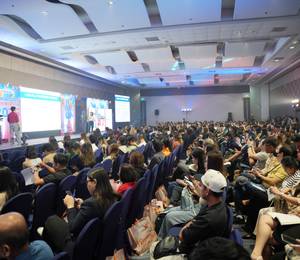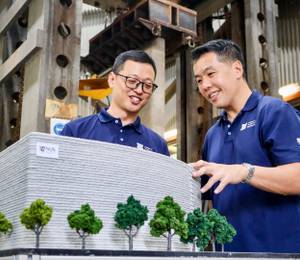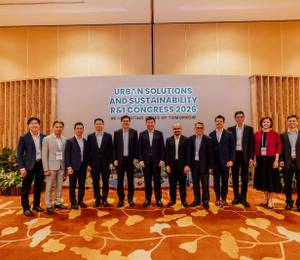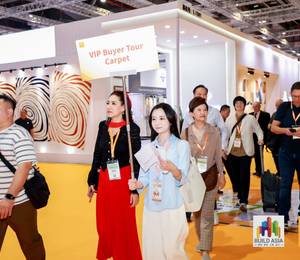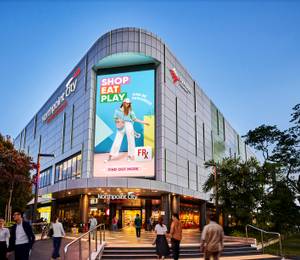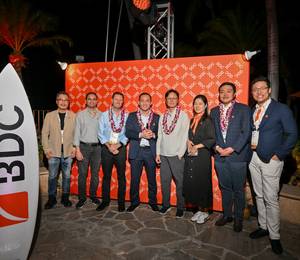Hangzhou, China – Two stadiums designed by Archi-Tectonics have topped out at Hangzhou Asian Games Park, bringing the 116-acre complex – which the New York-based architecture firm also masterplanned – closer to completion. The Tennis Table and Field Hockey Stadiums – both 5,000 seats – will anchor the mile-long park and host competitions for the 2022 Asian Games, the largest international multi-sports competition after the Olympics. Once the Games end, the stadiums and park will adapt to new uses, becoming a signature public recreation complex for the city of Hangzhou.
Planning for legacy use drove the design of the park and stadiums from the earliest stages. At the outset of the project, Archi-Tectonics studied legacy public programming options to ensure the complex remains an active center of urban life for decades to come, designing the park and buildings to easily accommodate these future uses. The Tennis Table Stadium, for example, is designed with a hybrid seating system that combines stadium and amphitheater seating styles, enabling it to host both sporting events and – after the Games – concerts and other performances. The Field Hockey Stadium will be adapted for outdoor gatherings like night markets and open-air concerts.
The design also includes the infrastructure that will be required to support these legacy uses, enabling the complex to seamlessly convert after the Games end. Though the Games themselves will be serviced completely by public transit, Archi-Tectonics discretely incorporated 645,000-square-feet of parking space underneath the park, supporting legacy uses including major events in the stadiums as well as shopping in the Village Valley Mall, nature walks, and recreational sports leagues. More, custom-designed Solar Wings power an outdoor lighting system, allowing the park to be safely and comfortably used for public recreation at night without increasing its carbon footprint.
Archi-Tectonics received the commission for Hangzhou Asian Games Park after winning an international invited design competition. The firm developed the masterplan and designs in collaboration with !Melk Landscape Design and Thornton Tomasetti Engineers. Construction is scheduled to complete in 2021.
